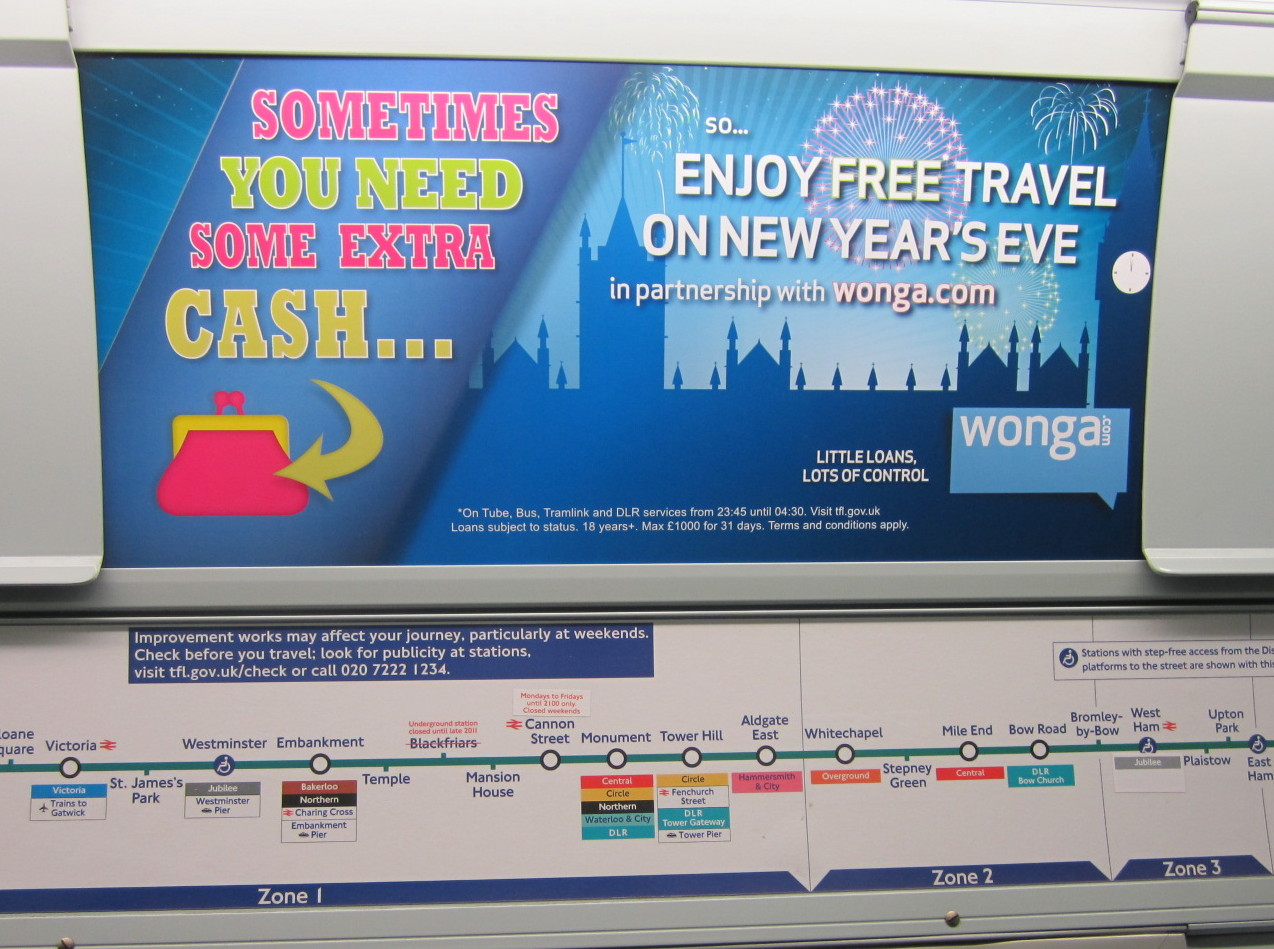Wonga Might Be Uniquely Unscrupulous, But the Whole Commercial Banking System is Out to Get Us
by Grace Blakeley
28 August 2018

This month, Wonga – the infamous payday lender – has found itself in financial difficulties. The trouble started when a clampdown on payday lending in 2013 brought some of the industry’s less scrupulous practices to light. Many payday lenders were accused of targeting vulnerable customers with extremely high interest rates, deceptive advertising, and aggressive debt collection practices.
In 2014, the Financial Conduct Authority (FCA) imposed limits on the amounts payday lenders were able to charge in interest, which has hit profits. But the real source of Wonga’s difficulties has been the dramatic hike in compensation claims from customers who took out loans before 2013. The increased scrutiny to which payday lenders were subjected led to a spike in cases brought against them by claims management companies.
Wonga’s fall from grace has been quite dramatic. In 2011, the company was making £45m in profits on revenues of £185m. Some estimated it was worth up to $1bn. When regulators finally caught up with the payday lenders the party stopped pretty quickly. In 2015, Wonga reported losses of £80m, followed by further losses of £66m in 2016. Today, it is worth just $30m.
The speed with which a regulatory clampdown hit Wonga’s profits suggests its entire business model was built on unethical lending practices. The company has found itself effectively unable to operate in an environment in which it is properly regulated. Most people would argue Wonga’s peak pre-2013 interest rate of 5,000% per annum is unquestionably economically – and indeed morally – unjustifiable.
Wonga would argue it provides short-term access to credit to people who otherwise might be unable to get it. Due to the higher risk of default associated with such customers, it charges high rates of interest to compensate for the risk. It would argue that those customers never actually end up paying 5,000% of the original loan value, because they pay off the loan over the course of days or weeks, not years.
But the trouble is repaying these loans did take years for many – and often those least able to afford it. Some found a quick cash injection couldn’t solve their financial troubles, leaving them with a payday loan and no payday. For others, the terms and conditions were so complicated they found themselves strapped with huge interest rate charges of which they were unaware. Many such customers were already on the edge of the poverty line, and the cost of interest repayments tipped them over the edge.
Wonga’s business model may seem uniquely exploitative, but its practices are merely an extreme version of a more general trend. Many mainstream banks offer credit cards which charge customers up to 40% per year in interest and other charges, even though the interest rate set by the Bank of England is still at less than 1% – an eye-watering mark-up. The rates are generally higher for those customers with poorer credit scores, including those who have previously defaulted on loans. By making credit more expensive for those least able to pay, these lending practices create a self-reinforcing cycle of poverty and indebtedness for some sections of the population.
The reason banks and other financial institutions can behave in this way is that lenders benefit from an asymmetry of power between lender and borrower. There are many in this country living on the brink of deprivation: we are entering the longest period of real wage stagnation since the Victorian era and many people are struggling to cope with costs they could previously have absorbed. A car breakdown, unexpected injury, or relationship breakdown could send them over the edge. In such a situation, many people will have a choice between going to a payday lender, taking out a new credit card, or facing poverty or homelessness.
This extreme scenario exposes a more general truth: the rate of interest charged to businesses and consumers is not determined by some abstract equilibrium point between supply and demand for money, as argued by mainstream economists. Interest rates are determined by power relations: the more money held by a few large institutions, the higher the rates of interest they can charge. Given the concentration of wealth in our banking sector since the financial crisis, it is hardly surprising commercial interest rates are so high, even as the base rate is so low.
So what can be done? To start with, interest rates on unsecured lending (lending not backed up by an asset like a house) should be limited to the principal (the amount originally borrowed) plus 100%. This would mean some customers with poor credit scores would be denied access to credit. So, over the longer term, greater competition should be introduced into the banking sector. The current universal banking models which marry commercial and investment banking are anti-competitive, and can create serious systemic risks to financial stability as we saw in 2007. Big banks should be broken up. Mergers and acquisitions by financial institutions should be limited, and regional banks and mutual should be encouraged to grow.
Perhaps most importantly, low-interest loans to struggling consumers should be seen as a public good that can save families from falling into poverty. Such services should be provided by public, consumer-facing banks that are able to pass on the extremely low interest rates offered by the central bank straight to consumers.
Even though the UK hosts one of the world’s largest financial sectors, our banking system is not fit for purpose. Private banks’ monopoly control over lending in this country is choking off economic growth, exacerbating inequality and forcing many people into poverty. The clamp-down on payday lenders is merely a sticking plaster: the entire commercial banking system requires reform.